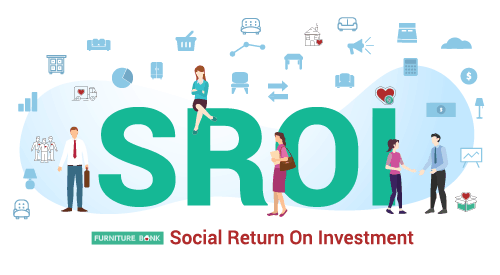A win-win solution for retailers and communities
The Housing First approach has proven effective in addressing chronic homelessness, but providing empty housing units is only the first step. To truly empower individuals and families to rebuild their lives, we need to embrace the concept of “Homing” – furnishing homes with essential items for a stable and dignified life. Utilizing excess inventory from retailers in the home furnishing sector will provide much needed essential items to individuals and families, allowing them to build a home.
Why homing matters:
- Stability and dignity: A furnished home fosters a sense of security and belonging, crucial for individuals and families transitioning out of homelessness.
- Improved well-being: Access to furniture positively impacts mental and physical health, reducing stress and improving sleep quality.
- Increased housing retention: Furnished homes encourage engagement with support services and personal goal pursuit, leading to long-term housing stability.
- Environmental sustainability: Homing diverts gently used furniture from landfills, promoting environmental responsibility and resource conservation.
Homing case study: London Ontario
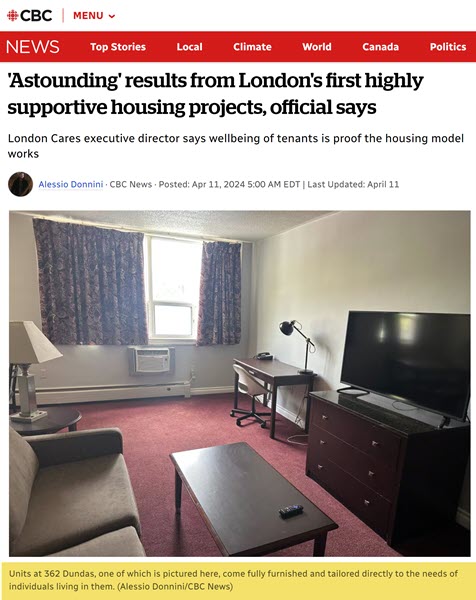
- The 362 Dundas supportive housing project in London, which opened in October, offers 25 fully furnished units tailored for tenants with complex health needs. This initiative is part of the city’s comprehensive plan to combat homelessness through integrated supports.
- The project’s effectiveness is highlighted by a 74% reduction in emergency department visits, illustrating both healthcare cost savings and improved tenant health outcomes.
- The home environment promotes a strong community, evidenced by family reconnections, communal activities, and reduced substance use, enhancing tenants’ stability and employment opportunities.
Furniture Bank: scaling homing solutions
Furniture Bank plays a vital role in scaling Homing solutions across Canada. Partnering with social service agencies, they provide furniture and household essentials to those in need, ensuring efficient delivery and maximizing impact.
The role of retailers in homing:
Retailers can be champions of sustainability and social impact by embracing Homing initiatives:
- Donate overstock and excess inventory: Give furniture a second life and divert waste from landfills.
- Partner with Furniture Bank: Access efficient solutions for managing surplus and supporting community well-being.
- Enhance brand image: Demonstrate social responsibility and resonate with conscious consumers.
- Engage employees: Foster team building and community involvement through volunteer opportunities.
- Enjoy tax benefits: Qualify for deductions on charitable donations.
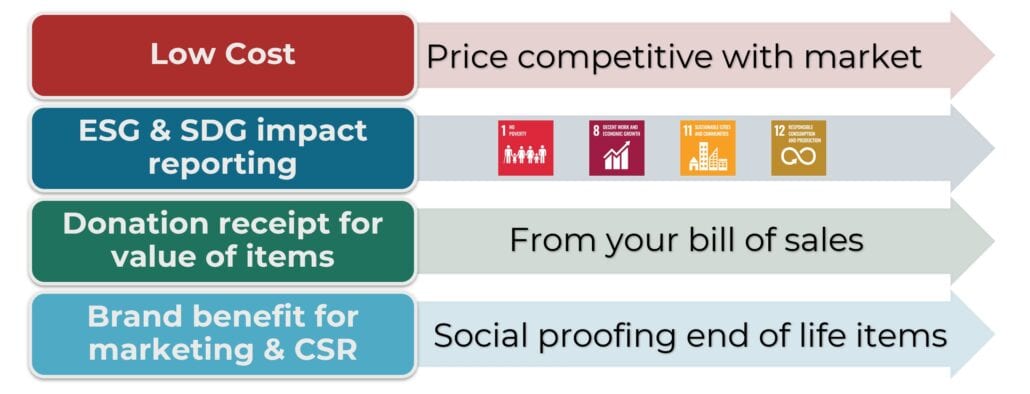
Benefits for retailers:
- Reduced disposal costs: Avoid expenses associated with destruction or landfilling.
- Enhanced brand image: Demonstrate social responsibility and resonate with conscious consumers.
- Employee engagement and retention: Foster employee satisfaction and loyalty.
- Tax benefits: Qualify for deductions on charitable donations.
- Community building: Contribute to stronger, more resilient communities.
Case study: IKEA Canada
Leading by example
Several retailers have already embraced Homing and are reaping the rewards. IKEA Canada, a long-standing partner of Furniture Bank, exemplifies the positive impact of such collaborations. Through their generous donations of returned and discontinued furniture, IKEA Canada has contributed to furnishing thousands of homes and diverting tons of waste from landfills.
Daily social, environmental, and community impact !
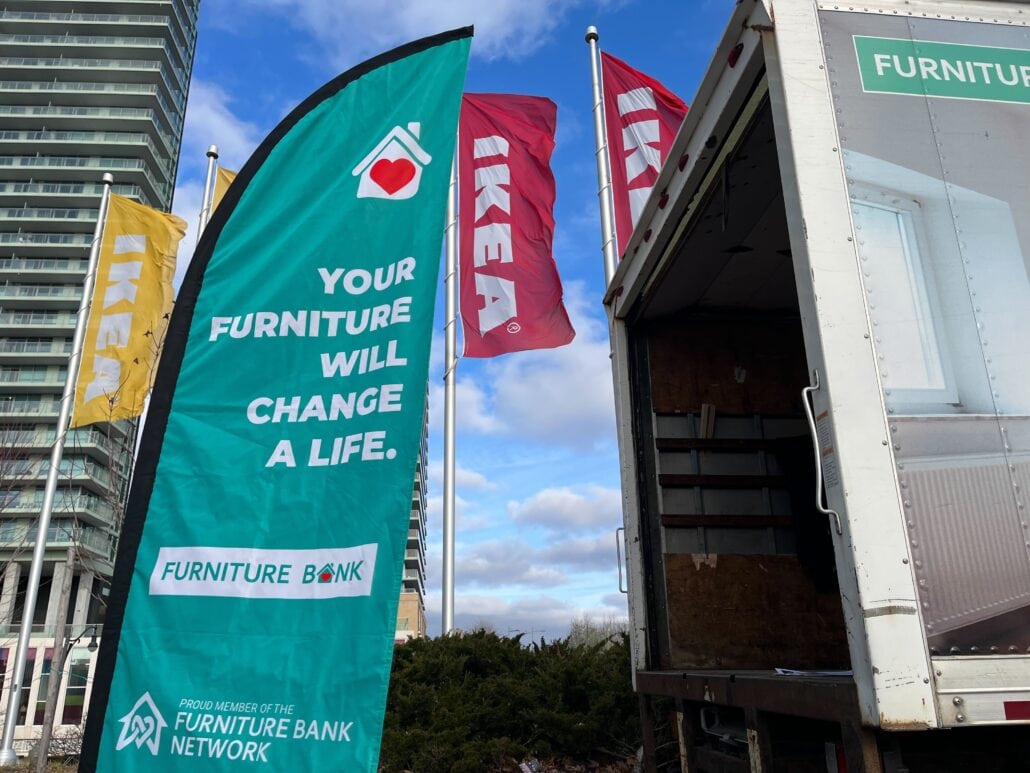
Social enterprise performance
- 653 trips to GTA stores and CDC
- 27,628 items collected for the community
Environmental impact
- 1,425,992 Kg of Carbon abated
- Equivalent to 65,473 mature trees planted
Social impact
- 13,305 families given furnished homes from these items through furniture bank
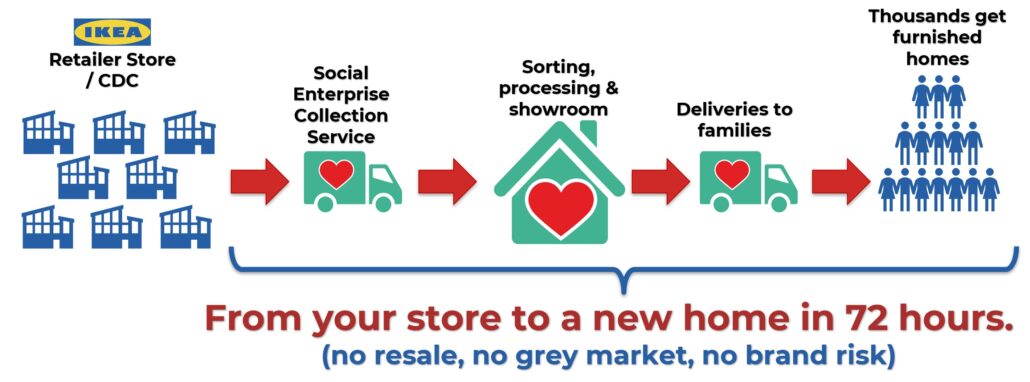
These impressive figures demonstrate the transformative power of collaboration between retailers and Homing initiatives. By following IKEA Canada’s lead, other retailers can make a significant contribution to building a more sustainable and equitable future.



